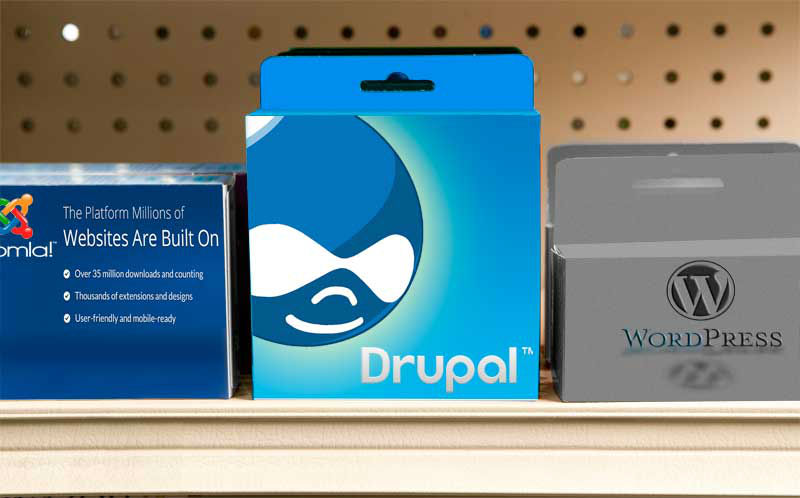Awright, CMSes have been used in the web for a long time. Many web developers use Off-the-Shelf Content Management Systems such as Joomla or Wordpress to create their client's websites. Then rummage the web finding a template that fits their clients needs. In many cases they find something that is near the client's needs, but not quite. Then comes the trade off. If the client is lucky the web designer will edit the template to take it to their client. But that creates 2 problems:
- the site will have the look and feel of the many other websites that used that template.
- if there is something customized the client wants: the designer wont know what to do, after all WHY use an Off-the-Shelf Content Management System?
The fact is that Off-the-Shelf Content Management System are designed for non-developers, thus many web designers that use them are not developers.
There are some advantages to using a Off-the-Shelf CMS but there are many disadvantages.
The Good
- Quick development time - since its already built they can be installed in minutes. The last time I used one it took me 3 minutes to install and 1 hour to customize. That friend had his site running quickly just before his presentation.
- Ease of management - since they are designed to be used by non-developers, the controls are limited and designed in a one size fits all manner. Customization is for developers and the people who download their plug-ins.
- Design is just a matter of selecting a template or theme. There are galleries of themes for all.
The Bad
- User interface and terminology is difficult to understand
- Functionality is limited to whatever the package offers
- They are not custom design for your company. They are after all an off the shelf solution, they are designed to cater to everybody. Once you install one, aside from basic modifications, that's all there is.
- Limitations. While many large websites run using Off-the-Shelf Content Management Systems they are heavily modified by many developers specialized in them. That adds time to the project and usually ends up creating conflicts in parts of the system because of a modification in another.
- Plugins are created by many different developers who are not associated with the CMS platform, and the quality of the plugins varies.
- Updating the CMS might break your site. Say you have version 4.2 of the CMS and then decide to upgrade to version 5 (or 4.5) but in the new version they remove a functionality that your site was using. What then?
The Ugly
- No back ups. Sure there are online backups made by your hosting company, and your web designer/CMS user can even download a copy of the files and SQL database into their computers. BUT, do they know how to restore them. Anecdote: a competitor recently had his server attacked, and his designers did not have back ups in their office. Once they were able to have the hosting company give them a back up, they still were not able to restore most of the sites from the back up. They had to redo the sites from the emails their clients sent them.
- Many people using the same system: many people looking at ways to attack it. Hackers will target widely used CMS solutions because they're more likely to get a better result and exploit more systems. These attacks are called 'Zero Day†exploits - meaning hackers can quickly target plenty of vulnerable sites before the owners get a chance to patch them - something that WordPress users often suffer from. Many WordPress site owners assume that your hosting company will automatically upgrade you to a new version - this is never the case and so what started off as a hassle free CMS is now something that you need to constantly monitor and patch yourself!
- YouTube videos of MySQL injection and hacking into a specific off-the-shelf CMS are becoming more common.
In Summary
We've developed our own modular content management system. Our Mobius CMS solution is purposely straight forward to use yet flexible and adaptable to any business requirements as your company evolves. Supporting multiple functions from Pages, News and E-Commerce it allows to control your website like a boss. We keep multiple backups of our all implementations of Mobius.

